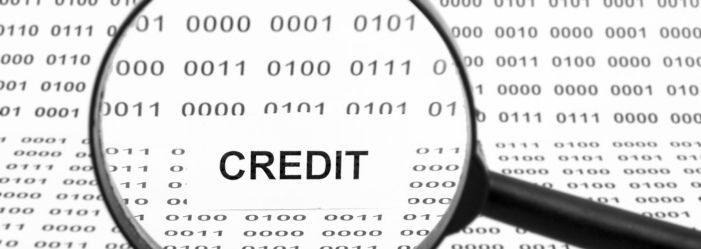Last Updated: March 19, 2024
Options for Building Credit Without a Credit Card

Disclaimer: We are not qualified legal or tax professionals and are not giving advice. Always speak with a qualified professional before making any legal or financial decisions.
Struggling to build your credit score without a credit card? You're not alone. Many people seek alternatives to credit cards for various reasons, whether it's due to personal preference or not qualifying for one.
Fortunately, there are several effective strategies to enhance your creditworthiness without relying on a credit card. From becoming an authorized user on someone else's account to taking advantage of credit builder loans.
This guide will explore proven methods to build your credit score and pave the way for a healthier financial future. Let's dive in and discover how you can start improving your credit today, without the need for a credit card.
Want to skip the article and speak directly to a debt specialist? Click here for a free consultation.
Credit Scores and Credit Reports
Your credit score is based on five different factors. These are payment history, credit utilization, age of credit, credit mix, and application history. Payment history is the single biggest factor in your credit score, representing 35% of your score. Every time you skip or are late with payments, your credit history takes a ding. Enough of these dings and your credit score drops.
The second largest factor, at 30%, is credit utilization. This looks at how much of your revolving debt you are using. Revolving debt is a loan that has a set credit limit but that you can use over and over again as you pay for what you used in the past. This is the very definition of a credit card. However, there are other revolving loans such as home equity lines of credit that are reported. The lower the credit utilization the better your score - in other words, the less you use your credit cards or HELOCs the higher your score.
Age of credit represents 15% of your score. Building this just takes time. You need at least 6 months' worth of credit usage to have a credit report. Another consideration is that the longer you have accounts like credit cards open, the better your score.
The credit mix represents about 10% of your score. Lenders like to see a mix of credit including loans and credit cards.
The final factor is application history (10%). Every time you apply for a credit card or a loan, your credit report is “pulled.” This temporarily lowers your credit score. The simplest way to avoid these dings is to not apply for every credit card that comes your way, regardless of the discount and rewards.
Since your credit report is heavily dependent on loans like credit cards, how do you build up your credit score without a credit card?
Report Rent and Utility Bills
There are several ways to have your rent payments and utility bills reported to credit reporting agencies. Most have a monthly fee to report your payments, but this may be worth it. Always understand what you are signing up for and how payments are handled.
Phone Plans
If you have a phone plan in your name, you may already have your payments reported to the credit bureaus. Remember to always pay your bills on time!
Become an Authorized User
Being an authorized user means that you are authorized to use someone else’s credit card. This can be great if the primary cardholder is responsible and pays their bills on time. If they are not responsible, your credit report will take a hit through no fault of your own. Before you sign up for this, make certain that the credit card company sends a report on authorized users.
Credit Builder Loans
These loans are offered through financial institutions like credit unions. You take out a small loan, and the money is put into a CD or savings account. You make payments on the loan until the loan is paid in full. At that point, you get the money that was set aside. As long as you make the payments on time, you are building a good credit report. These are good starters for people with a poor credit score or no credit to report.
Personal Loans
Personal loans are similar to a credit builder loan except you are responsible for putting the money aside. Because personal loan interest rates depend on good credit, you may be charged higher interest rates. Avoid payday loans. They are predatory and you may get into more financial trouble than they are worth.
While personal loans can build credit, avoid predatory payday loans at all costs. Their absurd interest rates lead to endless debt cycles. Seek personal loans from reputable providers like credit unions instead.
Auto Loans
Auto loans are reported to credit bureaus. Since these are secured loans (the car is the collateral for the loan), you can generally get a better interest rate than with a personal loan.
Shopping around among multiple lenders instead of just dealer financing helps you find the best auto loan rates. Determine your maximum budget beforehand so extra loan applications don't result in unnecessary credit checks while browsing.
Mortgages
Mortgages usually require a decent credit score and a large down payment so that may be out of the question. FHA mortgages are generally more accessible for people without a down payment or extensive credit report. Getting a mortgage requires you to be able to find a house to buy and this may be prohibitively expensive in some markets.
Secured Credit Cards
A secured credit card is a credit card that is backed by a savings account. You put a certain amount of money into a savings account and that becomes your credit limit. As long as you pay the credit card each month, the savings account remains untouched but if you fail to pay, the credit card will be paid from that savings account. If you don’t want a credit card in the first place, this is probably not an option.
Peer-to-Peer Loans
A peer-to-peer loan is money raised by investors who lend it out at better terms than a bank or credit union. As long as the P2P loan repayment is reported to the credit bureaus and you make payments on time, you will build your credit report.
Federal Student Loans
If you are a student and eligible for a federal student loan, you may want to take out at least a small loan. Repaying it on time is a positive step to build your credit.
Federal student loans can help establish a credit history, but only borrow what you need and will be able to repay. Overborrowing causes financial hardship that damages your score.
The Secret to Good Credit
This is worth repeating once more. The secret to building a good credit report is to pay your debts on time every time and to keep your revolving debt as low as possible.
If you have overused your credit cards and are in serious debt, Pacific Debt may be able to help.
Alternatives to Credit Cards for Building Credit
While credit cards can help build your credit history, some alternatives allow you to establish responsible credit use without getting a card.
Options include:
- Become an Authorized User: You can have a family member or friend with good credit add you as an authorized user on their credit card account. Their on-time payments get reported in your name, helping build your score. But beware - their missed payments also negatively impact you.
- Report Rent/Utility Payments: Services like RentTrack allow you to report your recurring on-time rent and utility payments to the credit bureaus. This demonstrates positive payment patterns. Many landlords work with RentTrack to make rent reporting easy.
- Apply for a Secured Credit Card: These cards require an upfront refundable deposit that becomes your credit limit. Making on-time payments helps build your score. Ensure the card issuer reports to major credit bureaus.
Setting Credit Goals
Having credit goals helps motivate your credit-building efforts.
Aim for these common tiers:
- 700+ score = Excellent credit. Qualifies you for the best rates on loans and credit cards.
- 650-699 = Good credit. Still decent rates.
- 550-649 = Fair credit. Approval is still possible but less ideal rates.
- Under 550 = Very risky. Most lenders will not approve applications.
Checking your credit reports frequently helps you monitor improvement. Setting milestones along the way keeps you on track.
FAQs
Pacific Debt, Inc
Pacific Debt, Inc. is an award-winning debt settlement company. If you’d like more information on how to get out of debt, we are happy to help. We will explain all your options and help you decide which is the best option for you. We can even refer you to trusted partners who can better meet your needs.
If you have more questions, contact one of our debt specialists today. The initial consultation is free, and our debt experts will explain your options.
Conclusion
Building and improving credit does not have to mean getting saddled with high-interest credit card debt. As covered in this guide, there are alternatives like authorized user status, reporting recurring payments for bills, secured credit cards, and other options that allow you to demonstrate responsible usage and payment history to build your score over time.
Set clear credit goals you want to achieve, like reaching a “good” score of over 700 within a year for approval on better loan terms. Check your reports frequently to ensure positive info gets updated while monitoring overall progress.
For those recovering from past issues, take urgent steps like bringing accounts current and paying down balances before systematically rebuilding using secured cards and alternate reporting methods.
While the journey may seem long, staying diligent in making on-time payments, keeping utilization low, and letting positive history accumulate will result in a stronger credit profile. Do not get tempted by dangerous products like payday loans in the meantime – this will only reverse hard-earned strides.
Be patient and let your diligent efforts compound. Not only will you qualify for lower rates, but you will have built financial discipline without unnecessary credit card debt.
*Disclaimer: Pacific Debt Relief explicitly states that it is not a credit repair organization, and its program does not aim to improve individuals' credit scores. The information provided here is intended solely for educational purposes, aiding consumers in making informed decisions regarding credit and debt matters. The content herein does not constitute legal or financial advice. Pacific Debt Relief strongly advises individuals to seek the counsel of qualified professionals before undertaking any legal or financial actions.
✔ Accredited by Better Business Bureau with BBB A+ rating (4.93 rating and 1678 reviews)
✔ US News and World Reports and Bankrate ranked Pacific Debt Relief as one of “The Best Debt Relief Companies of 2024”
✔ 6.9 star rating by BestCompany.com (over 2379 client reviews)
✔ 4.8 star rating by TrustPilot based (over 1613 verified consumer reviews)
✔ ConsumerAffairs.com Accredited (over 544 verified reviews with an average rating of 5 stars)
✔ A Top 10 Rated Compan by TopTenReviews.com , ConsumersAdvocate.com and Top10debtconsolidation.com
✔ 4.6 star rating by Google (229 client reviews)
✔ 100% rating by SuperMoney (9 client reviews)
Reduce Your Credit Card Debt By Up to Half

BBB Reviews | 4.9/5.0 Rating









 Do Not Sell My Personal Information
Do Not Sell My Personal Information